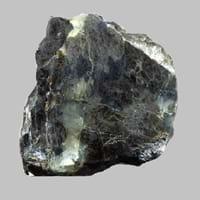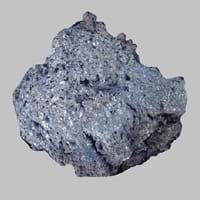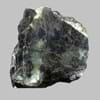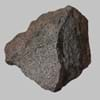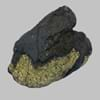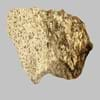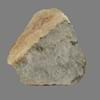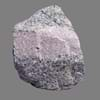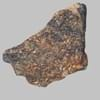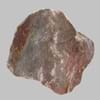Definition
Pyroxenite is a dark, greenish, granular intrusive igneous rock consisting mainly of pyroxenes and olivine
Picrite is a variety of high-magnesium olivine basalt that is very rich in the mineral olivine
Origin
Unknown
Hawaii Islands
Discoverer
Unknown
Unknown
Etymology
From pyro- fire + Greek xenos stranger as the mineral group was new to igneous rocks
From Greek pikros bitter + -ite, 19th century
Class
Igneous Rocks
Igneous Rocks
Sub-Class
Durable Rock, Hard Rock
Durable Rock, Hard Rock
Other Categories
Coarse Grained Rock, Opaque Rock
Fine Grained Rock, Opaque Rock
Texture
Clastic, Granular, Phaneritic, Porphyritic
Earthy, Rough
Color
Black to Grey, Bluish - Grey, Dark Greenish - Grey, Green, Light Greenish Grey
Black, Brown, Colourless, Green, Grey, Pink, White, Yellow
Durability
Durable
Durable
Scratch Resistant
Yes
Yes
Appearance
Layered, Banded, Veined and Shiny
Rough and Shiny
Interior Uses
Countertops, Decorative Aggregates, Interior Decoration, Kitchens
Countertops, Decorative Aggregates, Homes, Interior Decoration
Exterior Uses
As Building Stone, As Facing Stone
As Building Stone, As Facing Stone, Garden Decoration, Paving Stone
Other Architectural Uses
Curbing
Curbing
Construction Industry
As Dimension Stone, Building houses or walls, Cement Manufacture, Construction Aggregate, for Road Aggregate
As a Sintering Agent in Steel Industry to process Iron Ore, Cement Manufacture, for Road Aggregate, Manufacture of Magnesium and Dolomite Refractories, Roadstone, Used for flooring, stair treads, borders and window sills.
Medical Industry
Not Yet Used
Not Yet Used
Antiquity Uses
Artifacts
Artifacts, Monuments, Sculpture
Commercial Uses
Cemetery Markers, Commemorative Tablets, Laboratory bench tops, Jewelry, Sea Defence, Tombstones
As a Feed Additive for Livestock, As armour rock for sea walls, Metallurgical Flux, Pottery, Source of Magnesia (MgO)
Types
Clinopyroxenites, Orthopyroxenites and Websterites
Oceanite
Features
Generally rough to touch, Host rock for Diamond, Is one of the oldest rock
Host Rock for Lead
Archaeological Significance
Monuments
Not Yet Used
Used
Famous Monuments
Not Applicable
Data Not Available
Sculpture
Not Yet Used
Used
Famous Sculptures
Not Applicable
Data Not Available
Pictographs
Not Used
Not Used
Petroglyphs
Not Used
Not Used
Figurines
Not Yet Used
Used
Formation
Pyroxenites are ultramafic igneous rocks which are made up of minerals of the pyroxene group, such as augite and diopside, hypersthene, bronzite or enstatite.
Picrite is a fine-grained, hard rock which is a type of metasomatite, essentially altered basalt. It forms with or without crystallization, either below the surface as intrusive rocks or on the surface as extrusive rocks.
Mineral Content
Amphibole, Augite, Bronzite, Chromite, Diopside, Enstatite, Garnet, Hornblende, Hypersthene, Magnetite, Pyroxene
Biotite, Olivine, Plagioclase, Pyrrhotite
Compound Content
Aluminium Oxide, CaO, Chromium(III) Oxide, Iron(III) Oxide, Potassium Oxide, MgO, Sodium Oxide, Silicon Dioxide, Sulfur Trioxide
Al, CaO, Carbon Dioxide, Mg, MgO
Types of Metamorphism
Burial Metamorphism, Impact Metamorphism, Regional Metamorphism
Burial Metamorphism, Cataclastic Metamorphism, Impact Metamorphism, Regional Metamorphism
Types of Weathering
Biological Weathering, Chemical Weathering, Mechanical Weathering
Biological Weathering
Types of Erosion
Chemical Erosion, Coastal Erosion, Water Erosion
Chemical Erosion, Coastal Erosion, Glacier Erosion, Sea Erosion, Water Erosion, Wind Erosion
Grain Size
Coarse Grained
Fine Grained
Streak
White, Greenish White or Grey
White, Greenish White or Grey
Porosity
Less Porous
Less Porous
Luster
Dull to Vitreous to Submetallic
Subvitreous to Dull
Compressive Strength
Not Available
Cleavage
Irregular
Imperfect
Toughness
Not Available
2.1
Specific Gravity
3.2-3.5
2.75-2.92
Transparency
Opaque
Opaque
Density
3.1-3.6 g/cm3
1.5-2.5 g/cm3
Specific Heat Capacity
Not Available
Resistance
Impact Resistant, Pressure Resistant, Wear Resistant
Heat Resistant
Deposits in Eastern Continents
Asia
India, Russia
India, Russia
Africa
South Africa
South Africa
Europe
Germany, Greece, Italy, Scotland, Turkey
Iceland
Others
Greenland
Not Yet Found
Deposits in Western Continents
North America
Canada, USA
Canada, USA
South America
Brazil, Colombia, Venezuela
Brazil
Deposits in Oceania Continent
Australia
New Zealand, Queensland
Not Yet Found
All about Pyroxenite and Picrite Properties
Know all about Pyroxenite and Picrite properties here. All properties of rocks are important as they define the type of rock and its application. Pyroxenite and Picrite belong to Igneous Rocks.Texture of Pyroxenite is Clastic, Granular, Phaneritic, Porphyritic whereas that of Picrite is Earthy, Rough. Pyroxenite appears Layered, Banded, Veined and Shiny and Picrite appears Rough and Shiny. The luster of Pyroxenite is dull to vitreous to submetallic while that of Picrite is subvitreous to dull. Pyroxenite is available in black to grey, bluish - grey, dark greenish - grey, green, light greenish grey colors whereas Picrite is available in black, brown, colourless, green, grey, pink, white, yellow colors. The commercial uses of Pyroxenite are cemetery markers, commemorative tablets, laboratory bench tops, jewelry, sea defence, tombstones and that of Picrite are as a feed additive for livestock, as armour rock for sea walls, metallurgical flux, pottery, source of magnesia (mgo).
